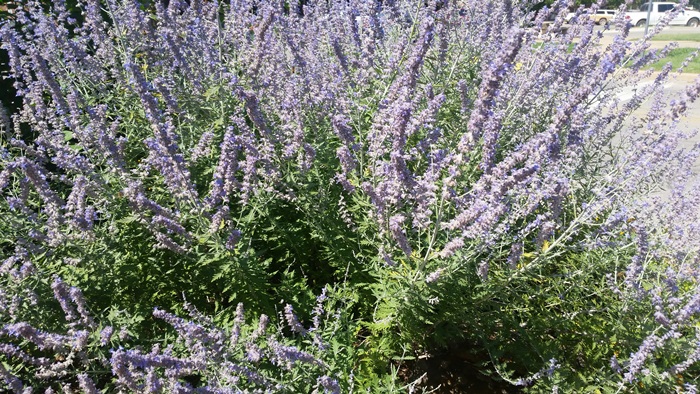Bee Friendly Plants…Russian Sage
Categories: Bees Landscape Design and Installation
Note: I just returned from an extended vacation. As I was reviewing this blog, my last post reminded me what a remarkable stretch of weather we’ve just come through. The balance of the summer should be very interesting from a plant perspective. For the immediate future, don’t assume your landscape does not need water based on all the rain we have had in the last 30 days. Things can change in a hurry with these hot temperatures, especially since many plants have not had to fully develop their root systems since water has been so readily available. Over the next few weeks, I’ll try to alert you to other potential issues that may arise from this very unusual weather pattern.
My office is located just two blocks from downtown Stillwater and I find myself walking the area almost daily. One of my favorite plants to enjoy is the Russian Sage being featured in several of the well landscaped beds. Russian sage ( Perovskia atriplicifolia) is a hardy perennial that performs very well in our area and the bees absolutely love it. While I’m not a good enough photographer to catch most of them in action, there were at least 30-40 bees working when this picture was taken. This plant so captures their attention that the bees did not even acknowledge my presence as I was trying to get close with the camera. This plant is a very long bloomer, typically from late spring right into fall, making it even more desirable if your goal is to help support pollinators.
You’ll find this plant typically grows to about 3-4′ in height and almost as wide. Over time, it can spread a bit but it responds well to pruning so the size is easily left in check. It can withstand quite a bit of water but also does quite well with limited irrigation. It can also handle a variety of soil conditions. I have personally grown this plant for years and find it to be one of my most reliable and easily cared for flowering plants. Give it a try.

Keith,
How can you get this plant? As a transplant? Who handles it?
Gerrit
It’s very common and you should be able to find it anywhere. As it matures, it will spread a bit and you can sometimes successfully divide a piece off of it.